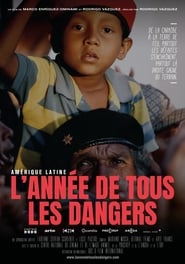detail profile jair bolsonaro
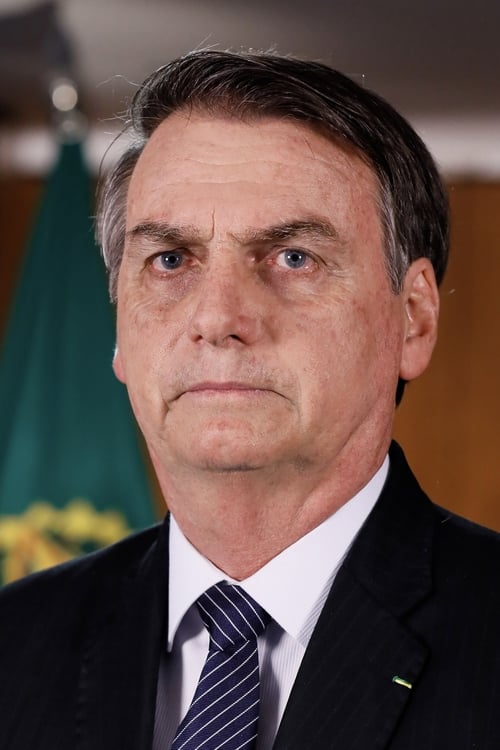
Jair Bolsonaro
Jair Messias Bolsonaro
atau dikenal sebagai
Riwayat Hidup
Jair Messias Bolsonaro (born 21 March 1955) is a Brazilian politician and retired military officer who has been the 38th president of Brazil since 1 January 2019.
He served in the country's Chamber of Deputies, representing the state of Rio de Janeiro, between 1991 and 2018.
He was elected president as a member of the conservative Social Liberal Party, before leaving them to found the party Alliance for Brazil.
Info Pribadi
Peran Yang Di Mainkan Jair Bolsonaro
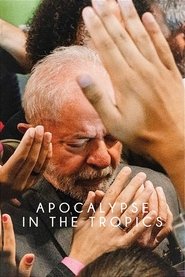 When does a democracy end and...
When does a democracy end and...Apocalypse in the Tropics 2025
When does a democracy end and a theocracy begin? In Apocalypse in the Tropics, Petra Costa investigates the increasingly powerful grip Christian evangelical leaders hold over politics in Brazil. She gains extraordinary access to the country’s top political leaders, including President Lula and former president Bolsonaro, as well as to Brazil’s most famous televangelist: a magnetic pastor who aspires to play puppet master to the far-right leader.
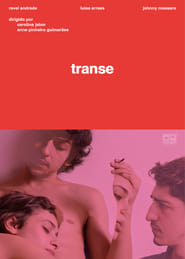 A threesome that takes place against...
A threesome that takes place against...Transe 2024
A threesome that takes place against the backdrop of Brazil's 2018 presidential election. Three young adults in a love triangle seek to understand the world and who they are on the brink of a shocking and highly-divisive election that puts the future of each one in check.
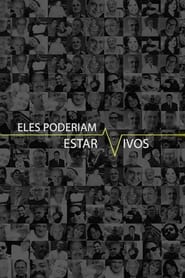 What would the pandemic have been...
What would the pandemic have been...They Could Be Alive 2022
What would the pandemic have been like in Brazil if the government had used all the potential that the SUS (Brazilian Federal Health System) offers? What could the country's 300,000 health workers have done to combat the uncontrolled transmission of the virus? How many deaths would have been avoided if we had done contact tracing, mass testing and invested in effective prevention and awareness campaigns? How many children, wives, husbands, mothers, fathers and brothers would have lost the most important people in their lives if the president of the republic had not bet on the strategy of intentional contamination to generate collective immunity, despising vaccines and betting on charlatanism (and corruption)?
 Breaking Myths aims to open the...
Breaking Myths aims to open the...Breaking Myths 2022
“Breaking Myths” aims to open the world’s eyes to the fragile and “catastrophic masculinity” of Brazil’s current President Jair Bolsonaro, a fanatical far-right politician who can best be described as the Brazilian Donald Trump — and who is up for a second term this October. The story is told through the lens of the critically acclaimed Brazilian filmmaker and LGBTQ activist Fernando Grostein Andrade (“Abe” Sundance 19), who directed, wrote, and produced the feature alongside creative partner Fernando Siqueira as the first release under his production company in California, FilmSoul Studios.
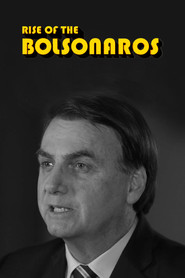 This documentary tells of the extraordinary...
This documentary tells of the extraordinary...The Boys from Brazil: Rise of the Bolsonaros 2022
This documentary tells of the extraordinary rise of Jair Bolsonaro, from relative obscurity to the ultimate seat of South American power. Told through intimate interviews with some of those closest to him including his eldest son Flávio, former government ministers, as well as his opponents, explore Bolsonaro’s brilliant yet ruthless journey to the presidency, with high-stakes drama, guns and God.
 A sobering look at the erosion...
A sobering look at the erosion...Endangered 2022
A sobering look at the erosion of democracy & freedom of the press in the United States and abroad.
 The movie is a collage and...
The movie is a collage and...8 Presidentes 1 Juramento: A História de um Tempo Presente 2021
The movie is a collage and comentary of varied third party footage on news relating to each and every one of the eight Presidents of Brazil who took office since the end of the military government, from José Sarney to Jair Bolsonaro.
 As the SarsCovid 19 pandemic increased Rubiane...
As the SarsCovid 19 pandemic increased Rubiane...Minha Bateria Está Fraca e Está Ficando Tarde 2020
As the Sars-Covid 19 pandemic increased, Rubiane Maia was in Folkestone, England, and Tom Nobrega in Tarapoto, in the Peruvian Amazon. Both were surprised by the sudden need to cancel planned trips to Brazil, their homeland. The closed borders brought unusual situations and an unknown feeling of exile. As news from Brazil reaches the distance like rocks breaking their computer screens, blurring the line between what is personal and what is collective, the pair of friends share their bewilderment and try to find some resonance amid the overwhelming amount of information that floats the virtual space.
 Behind the scenes of news coverage...
Behind the scenes of news coverage...Sieged: The Press vs. Denialism 2020
Behind the scenes of news coverage during the pandemic. Follow the work of the professional press in a fight against denialism.
 Greta Thunberg a 15yearold student in...
Greta Thunberg a 15yearold student in...I Am Greta 2020
Greta Thunberg, a 15-year-old student in Sweden, started a school strike for the climate as her question for adults was, if you don’t care about my future on earth, why should I care about my future in school? Within months, her strike evolved into a global movement as the quiet teenage girl on the autism spectrum becomes a world-famous activist.
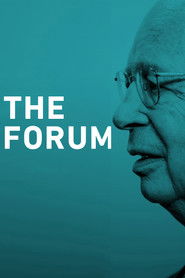 In times of rampant populism and...
In times of rampant populism and...The Forum 2019
In times of rampant populism and increasing distrust of the elite, the filmmaker accompanies the 81-year-old founder of the controversial World Economic Forum over the period of one year in his efforts to implement his leitmotif: to improve the state of the world. Can the WEF contribute to solving global problems? Or is it rather an integral part of the problem?
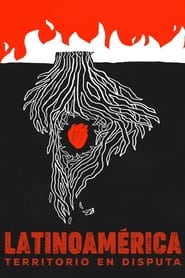 Documantary film on the dispute for...
Documantary film on the dispute for...Latinoamérica, territorio en disputa 2019
Documantary film on the dispute for the hegemony of the Latin American continent between conservative forces and popular movements.
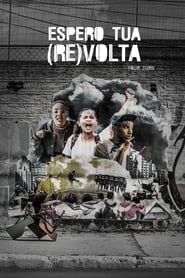 When numerous schools in So Paulo...
When numerous schools in So Paulo...Your Turn 2019
When numerous schools in São Paulo were slated to be closed in 2015 as a result of the worsening socio-political crisis, students occupied more than a thousand public buildings in an unprecedented act of self-empowerment. Filmmaker Eliza Capai shows the development of the many-voiced protests, using news excerpts, self-conducted interviews and recordings made with activists’ own cell phone cameras. From the first demonstrations in 2013 and continuing all the way to the election of the extreme right-wing presidential Jair Bolsonaro in 2018, Capai’s highly political work becomes more and more relevant with each passing day.
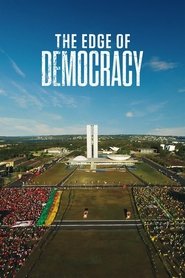 A cautionary tale for these times...
A cautionary tale for these times...The Edge of Democracy 2019
A cautionary tale for these times of democracy in crisis—the personal and political fuse to explore one of the most dramatic periods in Brazilian history. With unprecedented access to Presidents Dilma Rousseff and Lula da Silva, we witness their rise and fall and the tragically polarized nation that remains.
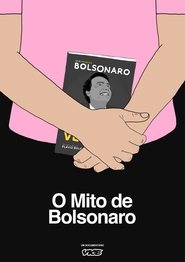 To understand the obsession with federal...
To understand the obsession with federal...The Bolsonaro's Myth 2018
To understand the obsession with federal deputy and presidential candidate Jair Bolsonaro (PSL) and how his network of support is structured on the internet, VICE went to São Paulo and Rio Grande do Sul to investigate its largest bases of support in the country.
 The impeachment and removal from office...
The impeachment and removal from office...The Trial 2018
The impeachment and removal from office of Brazilian President Dilma Rousseff in 2016 was triggered by a corruption scandal involving, among others, her then vice-president Michel Temer. Director Maria Augusta Ramos follows the trial against Rousseff from the point of view of her defence team. This is a courtroom drama that unfolds slowly: the appearances of the various parties gradually turn the proceedings into something akin to theatre. Inside the courtroom, grand emotions are played to full effect whilst, on the other side of the doors, lobbyists and supporters pace the corridors. Meanwhile, outside, in front of Brasília’s modernist government buildings, demonstrators are chanting like a Greek chorus. Only the main character, Rousseff herself, remains professional and aloof.
 How twenty cents began a conservative...
How twenty cents began a conservative...